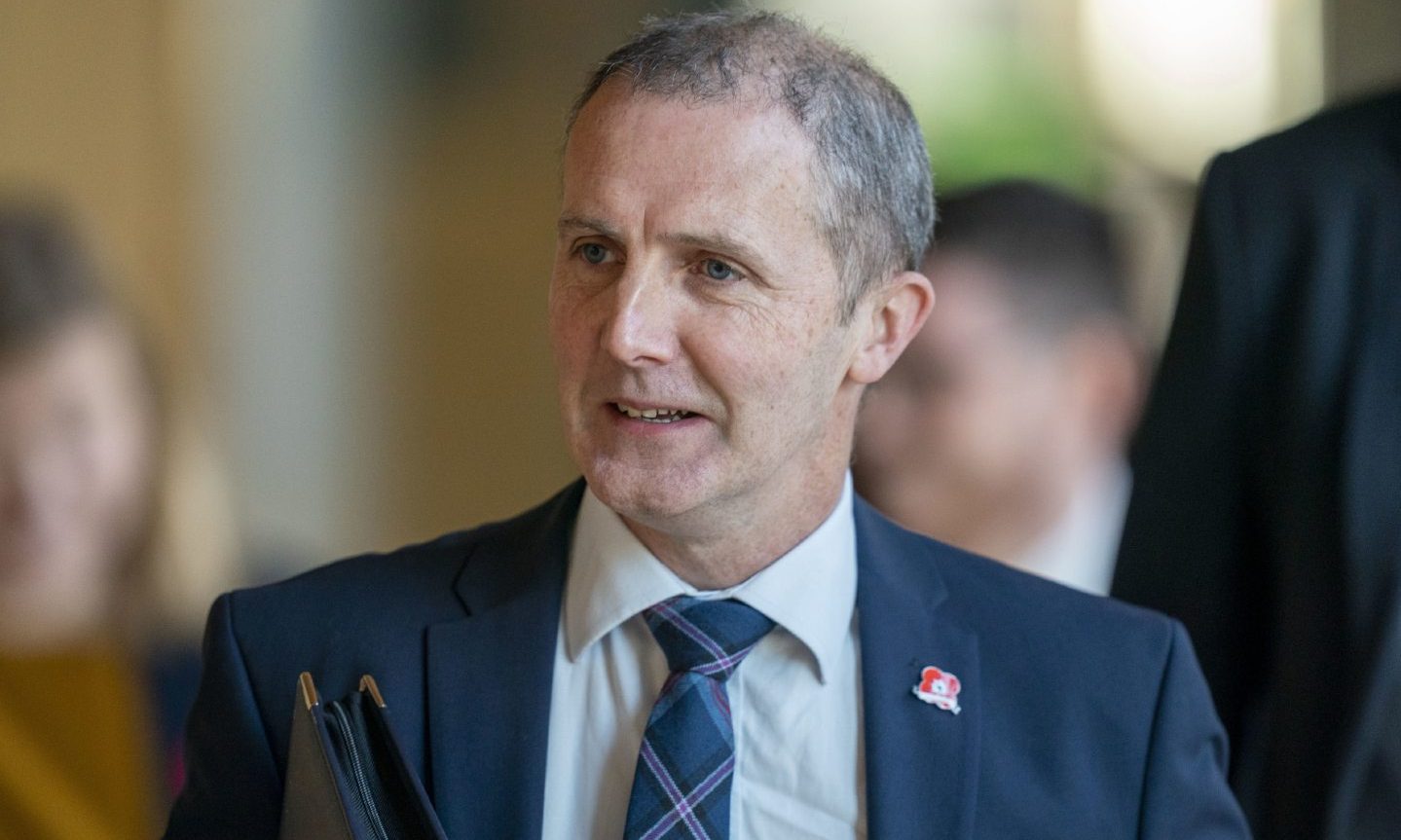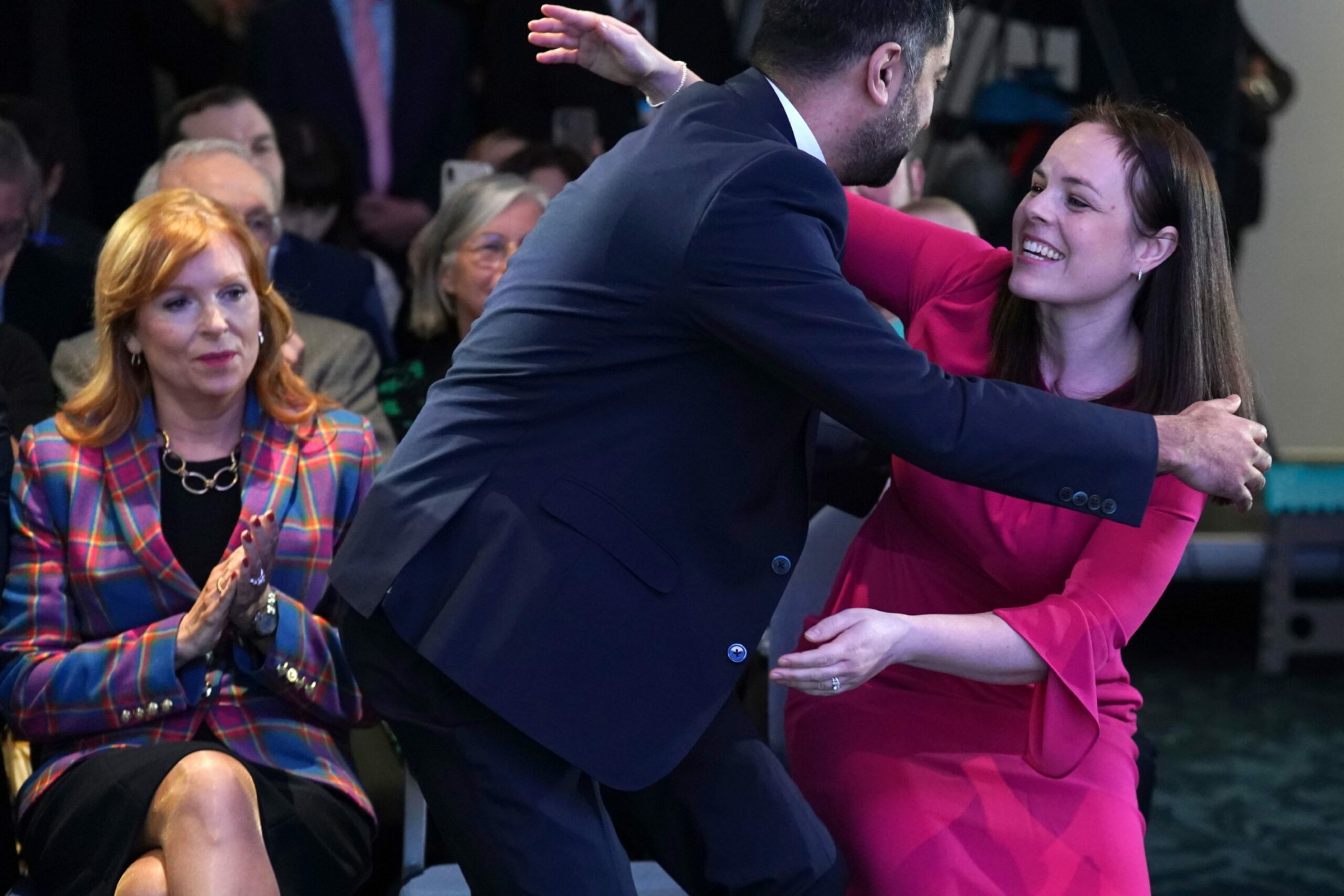When Labour’s Henry McLeish won the year 2000 race to succeed the late Donald Dewar as first minister, his celebrations were short-lived.
Within weeks of Scotland’s second devolution-era leader taking power, it was clear he had nothing like the authority of his predecessor. Colleagues began briefing against him, and it soon became clear that increasing numbers of Labour MSPs regretted not backing McLeish’s challenger, Jack McConnell, for the job.
Just 12 days after his first anniversary in office, McLeish resigned amid growing scandal over the sub-letting of his constituency office.
By this point established as the runaway favourite to take over, McConnell stood, unopposed, to replace his colleague. With every miserable day of McLeish’s troubled leadership, McConnell’s star had risen. Even Labour MSPs who disliked him saw him as the only serious successor.
SNP MSP Kate Forbes truly is a Jack McConnell for our times. The former finance secretary may have lost to Humza Yousaf in last year’s contest to take over from Nicola Sturgeon, but defeat has done her prospect of, one day, leading the SNP no harm at all.
You’ll remember that Forbes’s leadership campaign was rocked by defections after she revealed her Christian faith would have prevented her from voting in support of gay marriage had she been an elected member at the time the matter was being addressed in the Holyrood chamber.
Today, even some of those MSPs who rejected Forbes on account of her personal views would have her as their leader in a blink. The sense is that it’s really only a matter of time before the woman Yousaf defeated takes over.
Forbes is biding her time – and why wouldn’t she?
Thursday’s resignation of Michael Matheson as health secretary, in advance of the publication of a report into his expenses, sparked immediate speculation about Forbes’s political future.
Matheson – who claimed £11,000 for mobile data used on his parliament-provided iPad during a family holiday in Morocco, insisted it was legitimate, then admitted his teenage sons had run up the bill while streaming football matches – should have been sacked last year when it became clear he had misled parliament, press and public over his expenses.
Instead, Yousaf continued to defend his colleague, even as the stench of sleaze and cronyism filled the air.
Shortly after Matheson quit, Forbes was asked whether she might be interested in taking on the health brief. That, she said, was a matter for the first minister, and she wished him well. She didn’t seem to be a woman in a hurry to get back into government.
But, then, why would she want to join Yousaf’s team?
Under the current first minister, the SNP is heading for defeat across Scotland at the next general election. Polls currently show the nationalists and Labour neck and neck. It’s inevitable that the SNP will lose a hefty number of its 43 MPs when voters have their say.
Why would Forbes, an ambitious and intelligent politician, choose to be part of that catastrophe? Why would she volunteer to take the inevitable collateral damage that defeat will cause to her party’s senior figures?
Right now, there are SNP politicians and branch officials across Scotland who have decided Forbes is the answer to their party’s ongoing woes. Among her supporters are those willing to overlook her socially conservative views if she can stop the party haemorrhaging support.
Yousaf is now more vulnerable than ever
When he won the SNP leadership, Yousaf’s first show of weakness came when he offered Forbes the position of rural affairs secretary, a considerable demotion from the finance brief. Her rejection of his attempt to put her in her place has allowed her to speak freely and openly on a range of matters.
Yousaf is now more vulnerable than ever. Bluntly, he is not popular enough with colleagues to easily survive heavy losses in this year’s general election. If he presides over electoral failure, then the sharks – already circling, their dead eyes on his every wrong turn – will strike.
At that point, Forbes would be the clear favourite to replace him.
Of course, Yousaf could have avoided this latest crisis in his leadership if he’d done the right thing last year and sacked Michael Matheson. By standing by his man right up until his man bowed to the inevitable, Yousaf has weakened what moral authority he might have had.
There are difficult days ahead for Humza Yousaf, a man whose political future depends upon him restoring the SNP’s fortunes.
Kate Forbes will, I’m sure, watch his efforts closely. And, when the time comes for him to go, she’ll be ready to step up.
Euan McColm is a regular columnist for various Scottish newspapers



Conversation